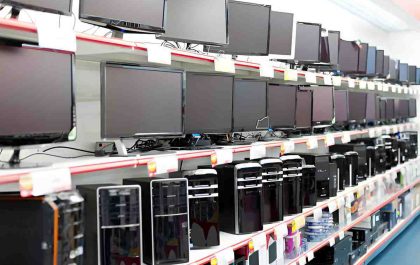The internet is often a way for people to perform research. It can be a way to stay connected to people and can also be a form of enjoyment. However, there are often several rules and issues that sometimes need to be dealt with in order to navigate through the internet in order to reach the desired outcome. Some of the information that you see online that you don’t think would change often changes when someone else takes over a website or the information becomes tangled with other detail about similar topics. While this is something that will likely last for decades into the future, there are some myths about the internet that should be addressed.
Table of Contents
1. Connections
There are sometimes issues with connecting to the internet that aren’t always what they seem. Not everyone is connected online. Even though the internet could be present in almost every country across the world, it doesn’t mean that the information that’s seen is the same as it is for how you view the internet. There are language barriers to connecting with people and getting online, and other countries might not be able to access the same websites that you can.
2. Advertised Speeds
When you choose an internet provider, you’ll get information about the upload and download speeds. However, these usually aren’t what they are advertised once you get everything connected in your home. There are times when there are more people using the internet at one time, which can slow down your speeds. Think of the speeds that you’re presented with as the maximum that could be available and not what you’ll always see. Different providers offer different speeds based on the types of connections that they have as well as your location to the main source.
3. Free Speech
Even though there are websites where you can say a bit more than you can on others, it doesn’t mean that the internet is a world of free speech. There are comment sections where you can make a post or leave a response to what someone else says, but the companies behind these sections can do what they want with the statements that you make. You can be blocked for some of the things that you say and could even get in legal trouble depending on how you make statements and who they are directed toward. Sometimes, employers could fire you for things that are said. Most websites have the ability to restrict what you post and can even restrict or share the things that you simply like and follow.
4. Sticking Around
When you post something online, you might think that it will stay there forever. While many pieces of information do stay around for quite some time, all it takes is a website being taken down for information to disappear forever. You should try to back up pictures or any important information that you want to save in the event that this happens so that you don’t lose important information that you want to keep.
5. Safety
You’ve probably heard that a way that you can be protected online is by using a firewall. While this is a way to keep you safe from outside threats, there are ways that others can hack into your information and send viruses even with the best firewall protection. Change your passwords from time to time, and make sure websites have a secure lock before entering information on them.
Related posts
Featured Posts
Top 10 Electronics Stores Near Me In Benton, Arkansas, USA
Top 10 Electronics Stores Near Me In Benton, Arkansas, USA – Are you looking for an electronic store near Benton,…
Top 10 Electronics Stores Near Me Batesville, Arkansas, United States
Top 10 Electronics Stores Near Me Batesville, Arkansas, United States – Do you want to know about Batesville City? and…



